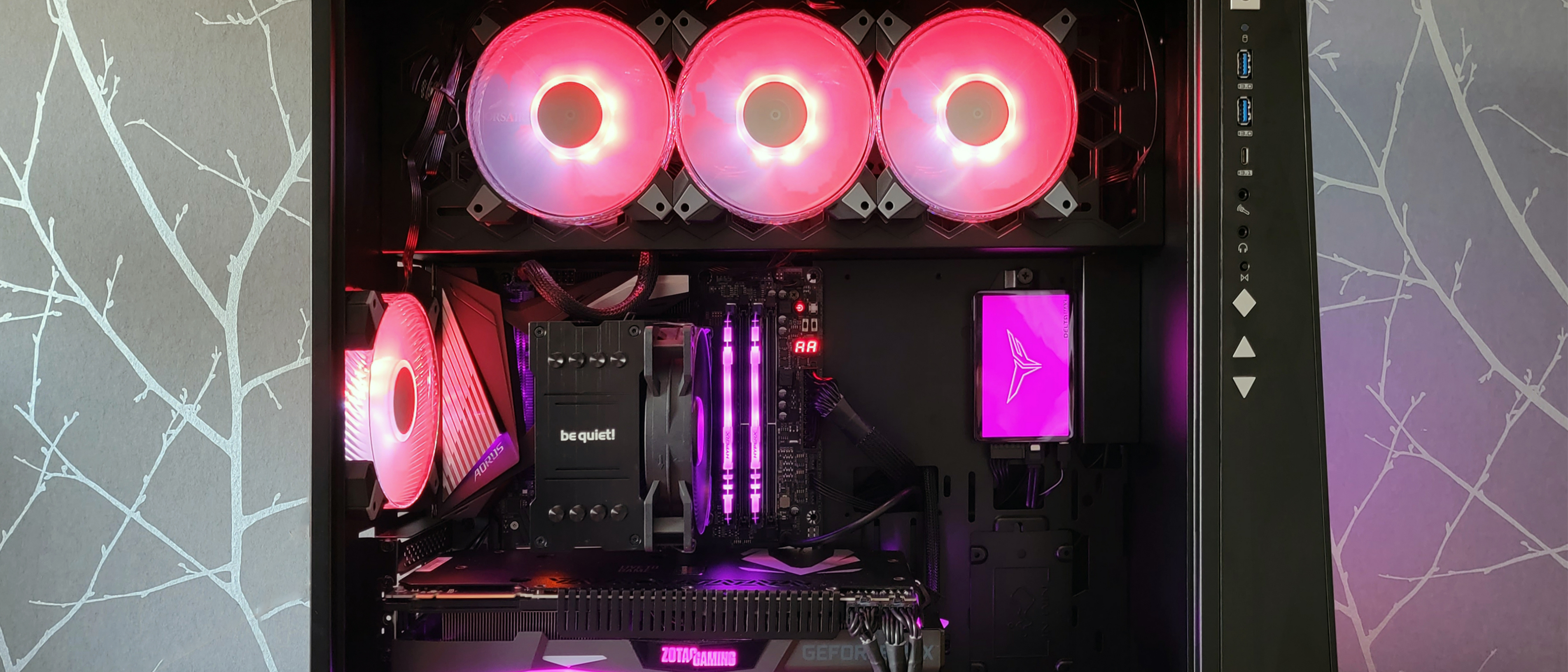Ultimate Guide to Building Your Gaming PC: Tips & Component Choices

Everything You Need to Know About Building a Gaming PC! 😄 [PC Parts Explained!]
Choosing Your Processor: The Heart of Your Gaming PC
The processor is vital for gaming performance. Consider how many cores you need. More cores help with multitasking & gaming. AMD's Ryzen offers great options. Intel's latest processors are also noteworthy. Choose between them based on your budget & needs.
Clock speed is another factor. Higher speeds mean better performance. Ensure it matches your motherboard. Compatibility is crucial. Look at benchmarks for gaming applications. They offer real-world insights.
The budget is important too. High-end processors might not fit yours. Mid-range options often provide great value. These offer a balance of power & price. Research is key here.
Processor Choices
- AMD Ryzen 5
- Intel Core i5
- AMD Ryzen 7
- Intel Core i7
Graphics Card: The Heart of Gaming Visuals
The graphics card defines your gaming visuals. Choose according to your display. A higher resolution demands a stronger GPU. NVIDIA & AMD lead the market. Research both options for the latest offerings. Check reviews to understand performance differences.
VRAM is essential. More VRAM means better graphics handling. GDDR6 is a standard now. Ensure your card matches your PC case & power supply. Compatibility checks can save effort later.
Price also matters. High-end cards are pricey. Balance your choice based on the games you play. Newer titles may need more powerful GPUs. Consider not just current but near-future requirements.
Top Graphics Card Options
Ted Johnson: "The Ultimate Guide to Building Your Gaming PC: Tips & Component Choices is crucial for success."
Motherboard: The Backbone of Your Build
Your motherboard links all components. Choose based on your processor & graphics card. Check compatibility first. The form factor is important too. ATX is popular but mATX & ITX are compact options. Your case size will influence your choice.
Look at the number of slots & ports. These influence expansion possibilities. More slots allow for future upgrades. Consider USB ports, and PCI slots too. Don't ignore that audio quality is important for you. Some boards offer enhanced sound.
Cost is a factor here. Balance features with budget. Overpaying might not make sense. Yet, being too cheap could mean lost features. Focus on your needs for now & later.
Recommended Motherboards
RAM: Essential for Smooth Gaming
RAM size affects your gaming experience. More RAM means better multitasking. 16GB is a good start for gaming. It's more than enough for most titles. Consider spending on faster RAM too.
DDR4 is a standard now. Check compatibility with your board. Speed influences performance, so test before buying. Dual-channel kits are best. This helps maximize data speed.
Price differences are usually based on speed. Balance within your budget. Don't overinvest, as it may not enhance right away. Buying from reputable brands ensures reliability. Reliability matters as faulty RAM can cause issues.
Top RAM Choices
| RAM Type | Recommended Size |
|---|---|
| DDR4 | 16GB |
| DDR4 | 32GB |
Storage: Where Games Reside
Storage impacts loading times. SSDs are game changers here. Move from HDD to SSD for faster access. Games load significantly quicker on SSDs.
Nevertheless, consider a hybrid setup. Use SSD for installed games. An HDD for other files can help save costs. Check out NVMe SSDs for ultra-fast speed, if possible.
Capacity matters but so does speed. Balance both based on usage. A 500GB SSD might be a minimum for gamers today. Explore options within your budget.
Types of Storage
| Storage Type | Speed |
|---|---|
| HDD | Slow |
| SSD | Fast |
| NVMe | Very Fast |
Power Supply: Keeping Everything Running Smoothly
Your power supply is critical. It must match your gaming PC's needs. Identify total power requirements of components. Invest in a quality PSU for safety & stability. Trusted brands offer reliability.
Efficiency ratings matter. Look for 80 As well as certification. Consider higher ratings for better efficiency. Modular PSUs help keep cables organized. This aids airflow within the setup.
Never overlook the wattage. High-end builds may need over 600W. Purchase with future upgrades in mind. Overestimate just a little for peace of mind. Doing so avoids future issues.
Power Supply Recommendations
Cooling Systems: Essential for Performance
Cooling ensures optimal performance. Overheating causes downtimes & damage. Air cooling is cost-effective & easy. It works well for most builds. Ensure good case airflow to enhance efficiency.
Liquid cooling offers advanced heat dissipation. It's suitable for overclockers. Requires a bit more maintenance & setup. Consider the extra costs & requirements.
Ensure compatibility with your case. Check radiator sizes for liquid cooling. Focus on longevity & quiet operations. Find a cooling system that matches your needs.
Types of Cooling
| Cooling Type | Efficiency |
|---|---|
| Air Cooling | Moderate |
| Liquid Cooling | High |
My experience building a gaming PC was enlightening. I dedicated time to figuring out the best component choices. The process was challenging but rewarding. Each part plays a crucial role in the final product. Understanding compatibility & tech features is key. It improved my tech skills significantly. Incorporating RGB lights was the fun part. Turned a simple rig into a masterpiece. Gaming now feels seamless & productive.
What are the essential components needed to build a gaming PC?
How do I choose the right graphics card for my gaming PC?
Is it cheaper to build or buy a gaming PC?
How much RAM do I need for a gaming PC?
How important is a cooling system for a gaming PC?
What is the role of the motherboard in a gaming PC?
Can I upgrade parts in my gaming PC later?
What power supply wattage do I need for a gaming PC?
How do I install an operating system on my new gaming PC?
What should I consider when choosing storage for my gaming PC?





